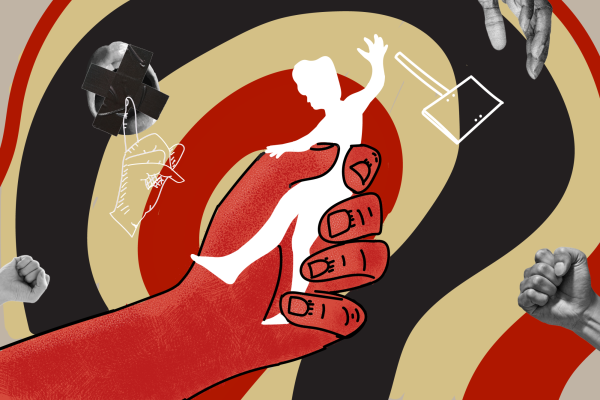The epidemic of vaping
Vaping has become a serious problem on college campuses. According to a recent survey, over 75% of college students reported using e-cigarette products during the Fall 2021 semester.
West Texas A&M University is tobacco free and banned the use of vapes from campus in 2019. However, people still smoke and vape on campus.
“My job was to work at the Cornette Library and [my boss] told us to kind of watch out because a lot of people were vaping in the library,” said Melissa Bullock, senior nursing (RN to BSN) major. “I’m pretty sure vaping was strongly frowned upon in the dorms, [but] those were probably the main two areas where they knew vaping was an issue.”
Universities across the U.S. have been noticing a disturbing trend in the usage of nicotine products. Cigarette smoking among young adults has been on a downward trend in the U.S, from a high of 36% in 1997 to 8.8% in 2018. However, vaping has medical professionals worried about a reversal of smoking trends from the past 20 years.
“Our big concern is that it is affecting folks and, unfortunately, maybe making them more likely to start smoking at some point or another,” said Dr. James Gibbs, physician of WT. “Nicotine itself can bring about a lot of physiologic changes, increase a person’s heart rate and the person’s blood pressure. It also can increase anxiety and cause people to feel sort of shaky.”
Nicotine is the main ingredient found in e-cigarettes and tobacco. Juul pods are the most common vaping device used by younger adults and teens. Juul pods contain nicotine and the additives propylene glycol (PG), glycerol and benzoic acid, which serve as thickeners and preservatives. When compared to the large number of harmful ingredients in tobacco smoking products, e-cigarettes are healthier. However, there is still harm in using them.
Juul is the largest company in the e-cigarette market. Their mission is to help smokers quit using cigarettes, not get a new generation of people addicted. However, the usage of sweet flavors such as watermelon, creme, mango and cucumber, have got millions of American kids, teens and college students addicted.
“Sometimes people have the feeling that if they smoke or vape, there may be a calming effect to them,” Dr. Gibbs said. “People may think it’s making them feel better. The brain is very powerful, but biochemically that’s just not really the case.”
Vaping is a serious issue that must be recognized as such. Luckily, there are a few different ways to tackle a nicotine addiction.
“The mechanism that I recommend using is trying to count how much they’re using each day,” said Dr. Gibbs. “Then what I encourage people to do is to kind of set out a plan so that they are gradually doing less and less use of [cigarettes or e-cigarettes].”
Dr. Gibbs also mentioned a potential use of vaping to curb tobacco usage.
“As healthcare providers, we’re pretty strongly opposed to vaping,” Dr. Gibbs said. “But if a person has been using tobacco products and they decide to use vaping to try to get off of [tobacco products], then I would support them.”
If you are experiencing an addiction and would like to consult a medical professional about it, WT offers 10 free counseling sessions every year to students. Student Medical Services can also answer any questions concerning addiction.
This reporter is one of the millions of people who has experienced an addiction to vaping.

Hello, my name is Marcus Rogers. I am from Greenville, Texas and I'm studying agricultural media and communication with a minor in political science. I'm...

















